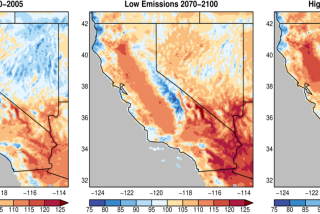California Law to Govern Unocal Human Rights Case, Judge Rules
- Share via
In a setback for Unocal Corp., a Los Angeles judge has denied the company’s motion to try a human rights case against it under the laws of Bermuda, where its pipeline subsidiary is incorporated, and Myanmar, where the offenses allegedly occurred.
Superior Court Judge Victoria Gerrard Chaney ruled that California law should govern all aspects of the upcoming trial on whether the El Segundo-based oil company should pay damages to Myanmar villagers. The villagers allege that soldiers in the country formerly known as Burma committed murder and rape and used forced labor to clear a path for a natural gas pipeline in which Unocal is a major investor.
In denying Unocal’s request, Chaney cited California appellate rulings that foreign law should be disregarded when it is “so offensive to our public policy as to be prejudicial to recognized standards of morality and to the general interests of the citizens.”
Unocal is considering an appeal. That could delay the trial, which is scheduled to start Sept. 22 but has been delayed several times. “We disagree with the judge’s decision,” said Daniel Petrocelli, an attorney representing Unocal.
Unocal’s lawyers had argued at a hearing June 28 that Burmese law should be applied to the plaintiffs’ claims that soldiers used intimidation and violence to coerce them into clearing land for helipads, service roads and other infrastructure for the $1.2-billion pipeline. During the mid-’90s, the period of pipeline construction, forced labor was allowed under Myanmar’s Village and Towns Acts.
Chaney chastised Unocal for drawing parallels between the imposition of forced labor by Myanmar’s military junta and forms of conscripted civil service practiced elsewhere.
“Even in the unlikely case that these (Myanmar) statutes authorized the violent and oppressive behavior at issue in this case (which Defendants repeatedly and reproachably liken to ‘jury duty’) this court would refrain from applying the Village and Towns Acts for public policy reasons,” she said in the one-page opinion issued late Wednesday.
Petrocelli denied Unocal had made any such comparison, saying Chaney’s reproach was “a regrettable comment that in my view misunderstood the discussion in the legal briefing.”
“It’s a point that was taken out of context,” Petrocelli said. “In one of the briefs, there was reference to various types of community service and public service that the law requires in different places throughout the world, including the United States. The point was being made that in Myanmar there is a long history and tradition and legal structure for providing community service. We in no way ever argued that any abuses committed by the government or the military regime in conscripting labor outside the ambit of the law was appropriate or shouldn’t be redressed.”
The case stems from two lawsuits filed in 1996 by 15 anonymous refugees who are in hiding. Chaney ruled last year that Unocal could be held vicariously liable for the offenses allegedly committed by soldiers guarding the pipeline corridor. Unocal also faces the prospect of a federal trial over similar allegations.
Chaney also denied Unocal’s request to apply Bermudan law to the question of whether the plaintiffs had sued the right corporate entity.
Company lawyers have said they would argue that California-based Unocal was wrongly sued. Unocal has said that the plaintiffs should have sued the Unocal Myanmar Operating Co., a subsidiary incorporated in Bermuda that was set up to carry out the pipeline investment.
More to Read
Inside the business of entertainment
The Wide Shot brings you news, analysis and insights on everything from streaming wars to production — and what it all means for the future.
You may occasionally receive promotional content from the Los Angeles Times.











